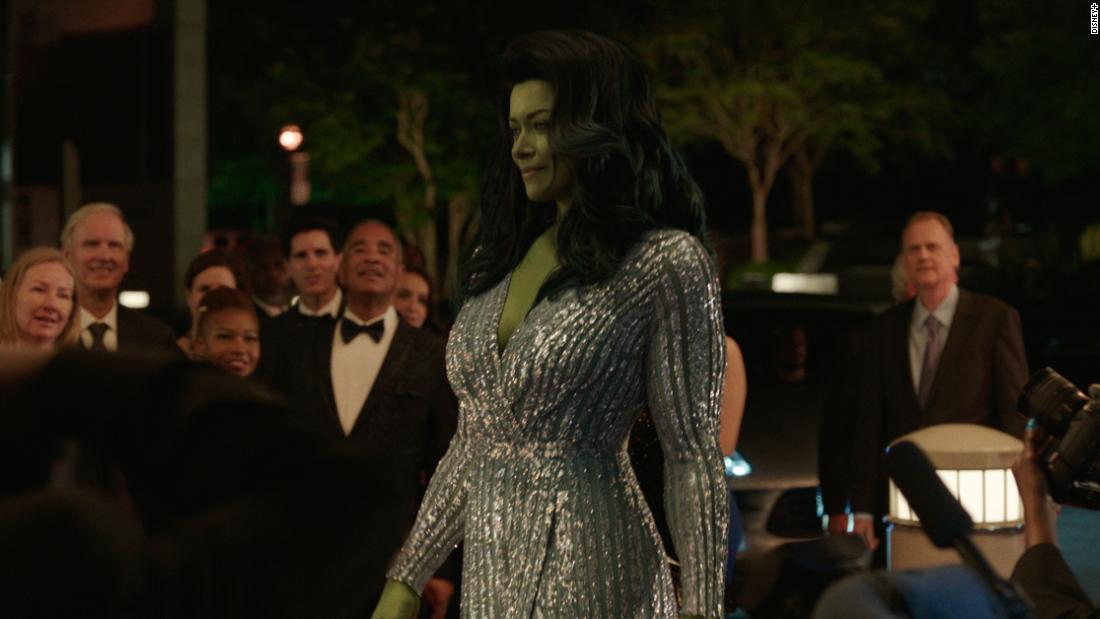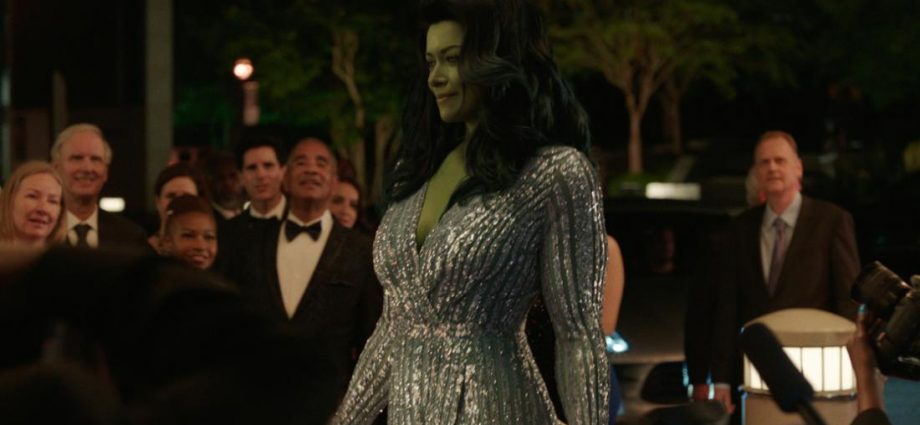
Ironically, the most buzzed-about element in advance of the premiere — how the computer-generated title character looks — is the least of the show’s worries. For the most part those scenes are just fine, if perhaps a little reminiscent of “Avatar” in the way the Hulks tower over ordinary folk.
Instead, the show bogs down in the it’s-not-easy-being-green comedy and emphasis on quirkiness, feeling episodic in the extreme, after the obligatory origin story is out of the way. While there’s nothing wrong with screwball office comedy, based on the four episodes previewed, that genre hardly plays to Marvel’s strengths.
For those unfamiliar with the character, the premiere dutifully sets up Tatiana Maslany’s Jennifer Walters as the cousin of Bruce Banner, a.k.a. the Hulk (Mark Ruffalo), who accidentally comingles her blood with his, investing her with extraordinary strength and size (6’7″, in her case, so a little more down to Earth).
Unfortunately, that same episode also establishes that Jessica will occasionally break the fourth wall and speak directly to the audience, a tired-enough device that proves especially awkward in this context, as she adjusts to the vagaries of switching back and forth between her superpowered and ordinary selves.
“There is no going back to what you were before,” the Hulk tells her, although part of She-Hulk’s DNA has been that she gradually recognizes certain beneficial aspects of her larger-than-life persona.
“She-Hulk” thus offers what amounts to a tabloid-esque, TMZ-informed view of the superhero world, with Jessica, the reluctant newcomer, serving as a de facto guide. If the idea has promise, the execution falls short despite the occasionally chuckle.
Comedy writer Jessica Gao and director Kat Coiro (whose recent credits include the Jennifer Lopez movie “Marry Me”) have some fun with the Marvel-ness of it all, from the various cameos to references to early Hulk movies not featuring Ruffalo to Jessica’s unwholesome interest in Captain America’s personal life. In Maslany, the chameleon-like star of “Orphan Black,” they also have a solid lead, without giving her the kind of material to flex those muscles.
The main problem is there’s nothing to really drive the narrative, with Jameela Jamil, as the super-powered influencer Titania, barely registering in the opening installments, each of which features a mid-credit gag.
The underlying proposition to Marvel’s Disney+ series has hinged on the opportunity to feature stories, characters and tones that wouldn’t have the weight or appeal to carry a big-screen incarnation, again, an approach not without merit. The effect of late, however, after an auspicious start, has tilted more toward diluting the flagship brand than augmenting it.
Even if the early series had their flaws, they generally contained enough thrills to justify the considerable hype. By contrast, “She-Hulk: Attorney at Law” presents a flimsy case for sticking around until the end. While the remaining episodes could reverse that summary judgment, so far, it lacks the appeal to win on appeal.
“She-Hulk: Attorney at Law” premieres Aug. 18 on Disney+.

